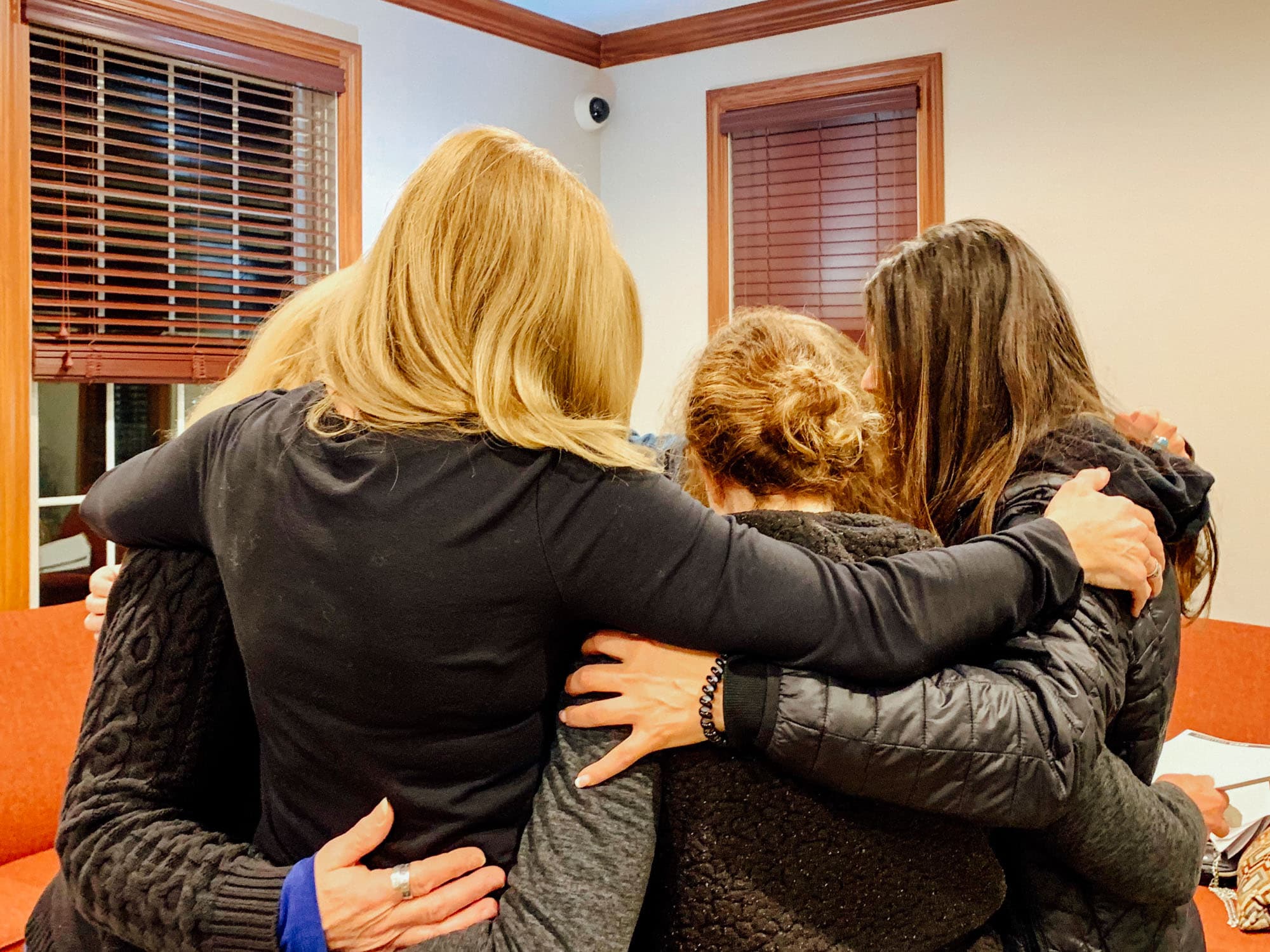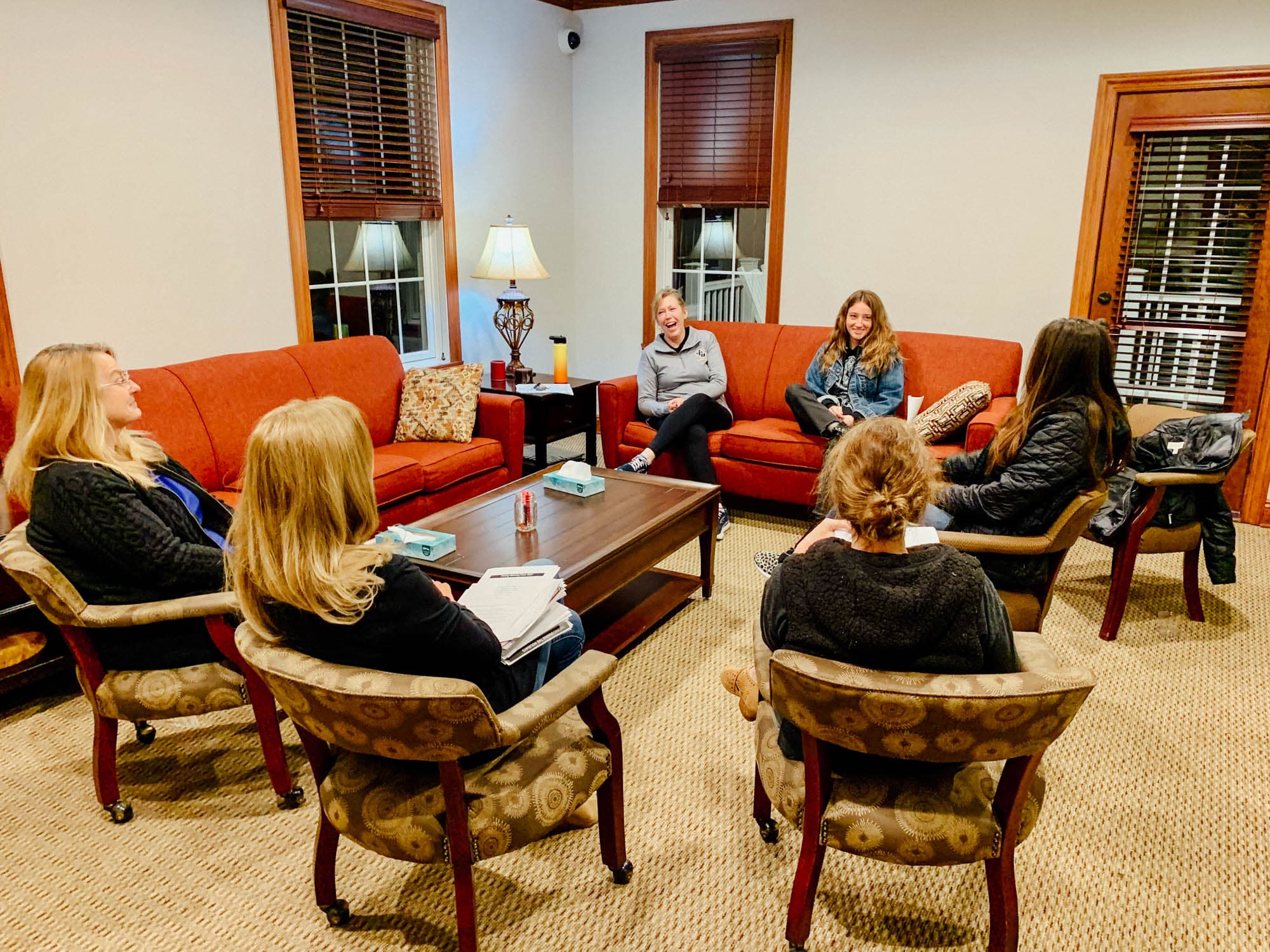Grief Support Groups
Cornerstone of Hope offers a personalized support group experience, open to all, regardless of ethnic, cultural and faith backgrounds.
We offer structured grief support groups each quarter led by professional facilitators. Our grief support groups have a specialized curriculum according to the type of loss experienced and are designed to support the unique needs of grievers. At the weekly support groups, facilitators guide participants through issues specific to the loss type, and provide opportunities for them to share their feelings and experiences. Each group meets for 8-10 weeks.

In order to participate in a support group, one must schedule an assessment and pay a one-time fee.
Your assessment must be completed at least two weeks prior to the start of the group in order to enroll. Call us at 216-524–4673 to schedule or click the button below.
What should I expect?
Our journey together begins with a fixed set of individuals, and no new members will be added during the session
Prior to the beginning of each session, a complimentary dinner is provided to promote fellowship and foster relationships
Weekly materials that include readings, resources, and exercises to help you make the most of your group experience
Our Support Group Calendar is updated annually with pertinent dates
Each meeting is two hours in length, in a comfortable, safe environment
Led by professionally trained and experienced facilitators
Adult Support Groups
Adult Grief
Losing a parent, sibling or friend can deeply impact an individual. This group is for all adults who are grieving the death of a loved one no matter the relationship.
Young Adult Grief
This group is for people who are ages 18 through 30 years old and grieving the loss of a loved one. This group brings people together, who because of their age, are able to find a strong support system and education together.
Spouse Loss
The death of a spouse can leave a huge void in one’s life. This group allows those who have lost a spouse or significant other to find hope and support.
Child Loss
The death of a child leaves parents feeling brokenhearted and alone. This group brings parents together, no matter the age of the child, to share and find hope on their journey.
Perinatal and Infant Loss
Losing a child in-utero or as an infant is devastating and not always acknowledged or understood by many. This group allows individuals and couples the opportunity to share this monumental loss and begin to heal together. General grief issues will be addressed, but we will also discuss the specific needs that arise after a death of an infant, whether through miscarriage, neo-natal, still birth or other infant loss (ages 2 and under).
Suicide Loss
When a person has lost a loved one to suicide, their grief can be complicated. Cornerstone is offering a group specifically for these survivors. General bereavement issues will be touched on, but particular attention will be given to the specific needs and stigmas that arise due to loss from suicide.
Murder Loss
When a person has lost a loved one to murder, it is a tragic and unique loss not always understood by others. Cornerstone of Hope is offering a group specifically for those facing this sudden loss. General bereavement issues will be addressed with particular attention given to the specific needs that arise after a traumatic death.
Complicated Loss
Sometimes there are individuals in our lives that are hard to love because our relationship with them was difficult. The people we lose often had very human problems-addictions, mental health issues, abuse/neglect, gambling, and infidelity. These problems forge a lasting impact in our lives. So, when death strikes we are left with conflicting emotions about the individual, ourselves, and our relationship with them. This group offers a safe place to explore these feelings and unresolved issues with others who understand. Join us for this educational and supportive group that will provide helpful insight into moving forward with hope.
Suicide Loss for Parents
When a parent has lost a child to suicide, their grief can be complicated. Cornerstone is offering a group specifically for these survivors. General bereavement issues will be addressed but with particular attention given to the specific needs for parents that arise due to loss from suicide.
Military Loss
TAPS is tragedy assistance for anyone who has lost a military loved one, regardless of the relationship or the circumstances of the death. Founded in 1994, TAPS is a front line resource to military families. We invite you to join us as we provide support, care and hope with fellow survivors in a spirit of friendship and understanding. You do not have to attend every month, only when you are able or feel that you need support.
Substance-Related Loss
Cornerstone has recognized a great need for a support group for families that have lost a loved one to a substance-related death. This unique loss can leave families with many unanswered questions along with a myriad of difficult emotions. This group brings together people who have experienced similar losses and offers education, support, and helpful insights into moving forward with hope.

Support Groups for Teens & Children
Child Grief
By incorporating education, peer support, and therapy, children will be able to explore their grief process and find hope after loss.
Teen Grief
By incorporating education, peer support, and art interventions, teens will be able to explore their grief process and find hope after loss.
“This group experience has given me the hope to go on and the realization that although things are different, there is the ability to move onward. It is good to be able to share with those that have walked the same path.”
SUPPORT GROUP ATTENDEE
Stay Connected
Subscribe to our e-newsletter to get the most recent information on our resources, programs and events.
5905 Brecksville Road
Independence, Ohio 44131
(216) 524–4673
253 N. State Street, Suite 200
Westerville, Ohio 43081
(614) 824–4285
2963 Blue Jacket Court
Lima, Ohio 45806
(419) 581–9138
TELEHEALTH
Please call to schedule an online appointment.
© 2024 Cornerstone of Hope, Inc.
Site by Each+Every
Cornerstone of Hope is a 501(c)3.
All donations are tax-deductible.